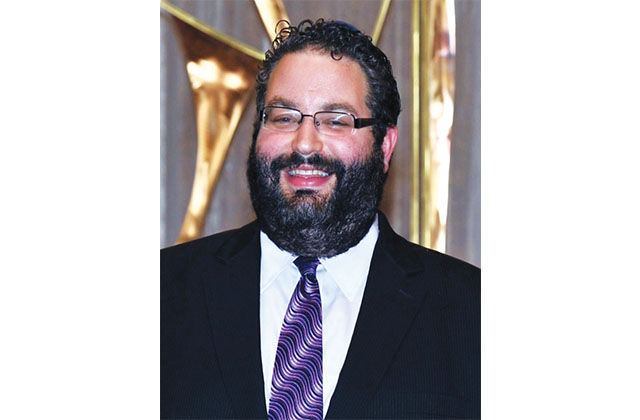By Rabbi Scott Nagel
The Sophia and Nathan Gumenick Senior Rabbi,
Congregation Beth Ahabah
It is the month of February in the Gregorian calendar, and you might have looked at your calendar to see if it was a leap year with that strange day that is added to the calendar once every four years, February 29th.
If you did, you might be disappointed because 2022 is not a leap year.
There is no Feb. 29th. The last year there was a leap year on the Gregorian calendar was 2020 and the next one will be in 2024. Yet all is not lost for Leap Year lovers, for in fact, in our Hebrew or Jewish calendar in which it is the year 5782, it is a leap year!
The Hebrew calendar is a Lunar calendar, based on the number of the cycle of the moon, differing from the Gregorian calendar, which is a solar calendar based on how long the earth takes to orbit around the sun.
Since the orbit around the sun takes 365 and ¼ days, adding one day every four years sorts out the timing difference. On the on the hand, a lunar cycle (from new moon to new moon) takes approximately 29.5 days, and 12 months of those lunar cycles will add up to 354 days, making the lunar year 11 days shorter than the solar year.
Therefore, in order to keep the Jewish Holidays aligned with their proper seasons, an entire month is added to the calendar 7 times every 19 years – in years 3, 6, 8, 11, 14, 17, and 19 in the cycle. In Hebrew, the leap year is called Shanah Me-uberet which means “Pregnant Year.”
Jewish Leap Year
In a Jewish leap year, this extra month is added after the month of Shevat and before the month of Adar. It is called Adar Aleph, Adar Rishon, or Adar I.
The month of Adar is then referred to as Adar Bet, Adar Sheni, or Adar II. According to Jewish tradition, Adar is a lucky and happy month, as in, “It’s Adar, be happy!” because Adar is the month that contains the holiday of Purim, a time of great celebration.
If you are going to add an extra month, why not make it an extra happy one?
This year Adar I starts on Feb. 2 – our Jewish leap month begins in the secular month that contains a leap day!
Purim, the holiday detailed in the Book of Esther commemorating the miracle of the Jews being saved from their evil enemy Haman, is still celebrated on the 14th of the Hebrew month of Adar II (the original Adar), yet this is still a minor holiday in our Leap Month Adar I and it is called Purim Katan), celebrated this year on the Evening of Feb. 14, and during the day of Feb. 15.
Katan Literally Means ‘Small’
What is Purim Katan you might ask? Well, its name has it all. Purim simply refers to the Jewish holiday of Purim, and katan literally means “small.” The two put together as Purim Katan actually translates as “minor Purim,” and this is a minor holiday that is only observed during a Jewish leap year.
According to the Talmud in tractate Megillah 6b, because Purim is observed in Adar II, the importance of Adar I must still be recognized. Thus, Purim Katan fills that void.
How do we celebrate this minor Purim?
Interestingly, the Talmud tells us that there is “no difference between the fourteenth of the first Adar and the fourteenth of the second Adar” except that, on Purim Katan: the Megillah is not read, gifts are not sent, the al ha-nissim (sections of prayer about miracles) prayer is not recited, and the tachanun prayers (sections of prayer involving confession and asking for forgiveness) are not recited.
Which means that there really is a huge difference. The only thing that remains is that fasting and funeral eulogies are not allowed as we do not want to diminish the joy of the day.
As for how to celebrate, the Shuchan Aruch (a later code of Jewish laws) tells us that it is considered worthy to simply mark Purim Katan with a small, festive meal such as a special lunch, and generally to increase one’s joy as well (Shulchan Aruch, Orach Chaim 697:1).
That is, with no commandment or rules to follow (i.e. reading the Megillah and sending gifts, especially to those in need), we are simply to celebrate on Purim Katan for the sake of celebration itself. A day to celebrate and be joyful because celebration and joy are good for us.
So, enjoy your “extra month” and use this time to find happiness and joy, for it is something we all could use this year and every year.
B’Shalom
Rabbi Scott Nagel
Email: rabbinagel@bethahabah.org





